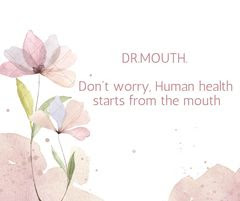Mediterranean fever—is it a disease to beware of?
Mediterranean fever symptoms and treatment
Mediterranean fever, or as it is called, "Riemann's syndrome," is an autosomal genetic disease that causes fever and high body temperature with inflammation of the joints and lungs, severe abdominal and chest pains, and a red skin rash around the sites of inflammation.
This disease occurs as a result of a mutation and defect in the production of a specific protein that prevents infections associated with some microbes that infect the human body. The absence of this protein and the presence of this defect lead to the production of interleukin-1 beta in white blood cells, which in turn leads to infection. Fever and tissue infections.
This disease spreads in the countries surrounding the Mediterranean Sea, such as Greece, Turkey, and Italy, which is why it is called Mediterranean fever in relation to the places of its spread. This disease occurs in the form of seizures that may be weak or strong, so let us learn about its symptoms and treatment.
Symptoms of Mediterranean fever
It is good to be aware that Mediterranean fever is not an infectious disease, as dealing with its patient occurs naturally without harming it or moving away from it, as it is basically a genetic disease that occurs due to gene mutations. Symptoms of this disease occur in the form of seizures, and the most important of these symptoms that you should know are:
- The remainder of the body is negatively impacted by a prolonged period of high body temperature that occurs regularly, which is a symptom that frequently appears in children.
- Due to the high temperature's direct impact on the joints throughout the entire body, which in turn inhibits the sick person's mobility, 50% of all infected individuals experience a bout of joint discomfort.
- A high temperature is often accompanied by a flare-up of severe abdominal pain brought on by widespread illnesses in the body. Almost 90% of infected individuals experience this type of flare-up.
- Chest pain attack, this attack occurs in 20–40% of all infected patients, and it is the least frequent attack in the total number of seizures and symptoms, When it occurs, it may be so strong that the patient cannot breathe adequately or normally.
Sometimes a person may develop a red rash, often around the affected joints.
- A person with Mediterranean fever may experience a constant headache associated with a high body temperature.
- Recurrent pericarditis is the swelling and irritation of the thin, sac-like membrane surrounding the heart.
Sore muscles.
- Inflammation of the lining of the brain.
- Spinal cord inflammation.
- Inflammation of the scrotum in boys.
- Inflammation of the outer layer of the heart.
These rare symptoms lead to the emergence of amyloid disease, such as defects in kidney functions, lung functions, heart functions, and defects in the functions of body systems as a result of inflammation of the brain membranes.
Mediterranean fever treatment
Sometimes it is possible to reduce bouts of Mediterranean fever by eliminating certain foods that cause increased inflammation in the body, including:
- processed and processed meats, such as sausages and smoked meats, because they contain a large amount of harmful saturated fats that increase the chances of infections appearing on the patient.
- Fried food of all kinds contains oils that contain omega-6 fatty acids that lead to inflammation and imbalance.
- Sugars of all kinds, such as chocolate, soda, biscuits, and processed juices.
- Whole milk products and some plants, such as tomatoes and peppers.
Most genetic diseases resulting from mutations in the genetic genes transmitted from the parents do not have a specific treatment, but this is not a cause for concern. In Mediterranean fever, there are some drugs that inhibit and reduce disease attacks and symptoms, such as:
- Colchicine is the preferred treatment for Mediterranean fever, as it does not prevent the disease from its foundation but aims to reduce the attacks of seizures that occur in the sick person by reducing inflammation and pain, and it also prevents the development and appearance of amyloidosis. IL-1 Inhibitor: This drug is a type of inhibitor that stops and reduces episodes of Mediterranean fever.
- These inhibitors are recommended by doctors to be the second choice in the treatment phase and to be used in the event that there is resistance to colchicine.
- Other medicines that can be used to suppress attacks of Mediterranean fever, such as Reserpine, Azelastine, and Prazosin (a selective serotonin reuptake inhibitor).
The previous medicines are not used on their own and must be used under the supervision of a specialist doctor because of their side effects.
Colchicine side effects
- Nausea Stomach pain.
- repeated vomiting.
- Headache.
- Bleeding with urine or stools.
- Stool color changes.
- preventing the formation of new cartilage cells.
- The formation of metalloproteins that negatively affect cartilage collagen.
- severe pain where the medicine was injected.
Finally, watch your children during their illness, especially when they have a fever, and protect them, for they are a trust that you have for which they are responsible before God, and do not worry if one of your children gets sick with Mediterranean fever so that you do not transmit this concern to them, and do not forget to provide them with psychological and moral support, and they must immediately go to a specialist doctor to tell you all about this disease, how to deal with its symptoms and seizures, and the necessary medications for that. Never forget that periodic follow-up and not laziness in visiting the doctor prevent us from having undesirable consequences.

Comments
Post a Comment